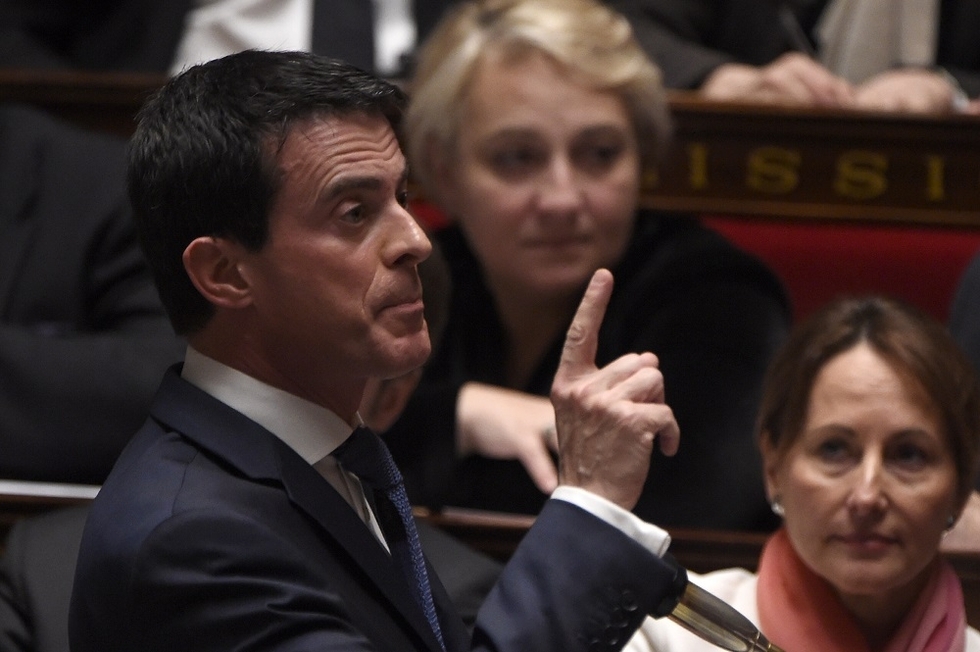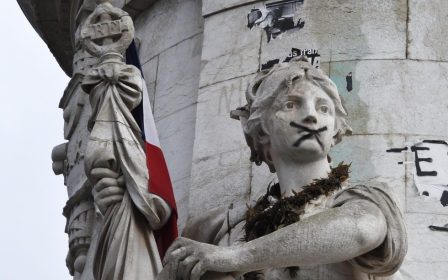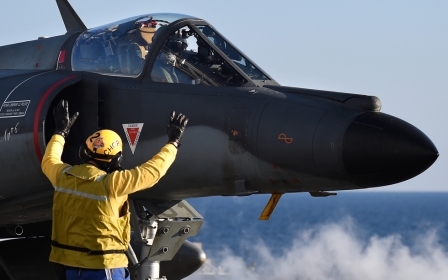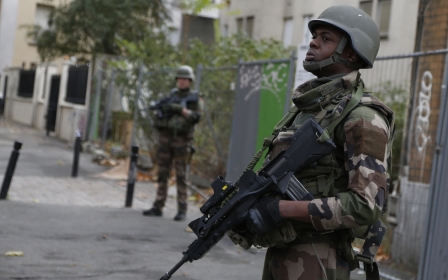State of emergency stays until IS goes, says French prime minister

French Prime Minister Manuel Valls has said that the current state of emergency in France should stay in place “for however long is necessary” because of the threat from the Islamic State (IS) group.
Speaking to BBC at a meeting of global leaders at the World Economic Forum in Davos on Friday, Valls said that "as long as the threat is there, we must use all means at our disposal,” adding that the battle against the militants could last for decades.
However, he did indicate that the emergency measures, in place since 13 November when an attack claimed by IS killed 130 people in Paris, could not be allowed to go on indefinitely.
"We cannot live forever in a state of emergency,” he said.
The measures give the state greater controls, including restrictions on the right to protest, allowing the state to place anyone deemed “dangerous for security” under house arrest, and freeing up the police to conduct more searches without judicial oversight.
During the interview, Valls also expressed serious concern over the EU’s current migration and asylum policies, saying that “we cannot say or accept all refugees, anyone fleeing the terrible wars in Iraq or Syria can be welcome in Europe”.
The refugee “crisis endangers the European project” Valls said, going as far as to say that the idea of Europe itself “that can die”.
“Not our values, but the concept of Europe that our founding fathers had, yes, it’s in very grave danger,” he said.
"That's why you need border guards, border controls on the external borders of the European Union."
Tighter control
Valls said that he wanted to see tougher border controls put in place both outside the EU and also within it. He also stressed that Italy and Greece had to do more to document and process refugees and asylum seekers, and send those who did not meet requirements back to their country of origin.
While the comments could be interpreted as an attack on German Chancellor Angela Merkel, who last summer opened the doors to many arrivals from war-torn countries including Syria and Afghanistan, Valls fell short of criticising her directly.
“Germany is faced with a major challenge… We need to help Germany,” he said.
More than a million migrants, refugees and asylum seekers entered Europe in 2015, a 20-fold increase on the year before. The overwhelming majority of these have settled in Germany, where Merkel’s open approach to the crisis has angered many who say they do not want to take in any more people, particularly young Muslim men.
The issue of migration, as well as the fight against IS, has so far dominated the Davos conference.
Former British Prime Minister Tony Blair, who was also in the Swiss resort town for the conference, asked just “how many people can Europe absorb… [and] can we be sure exactly who is coming in?”
"Those two issues combined make it a very, very tough political challenge,” Blair said.
"What I think is important is that Europe pools its force capabilities in a more effective way," he said. "We are talking about a migration crisis that is coming out of the crisis in Syria. If we don't solve the crisis in Syria, we're not going to solve the migration problem. Likewise, we face the same potential problem from Libya.
"If you need, as part of solving these crises, to exercise some force capability, then Europe in my view has got to up its game in defence terms,” Blair added.
Middle East Eye propose une couverture et une analyse indépendantes et incomparables du Moyen-Orient, de l’Afrique du Nord et d’autres régions du monde. Pour en savoir plus sur la reprise de ce contenu et les frais qui s’appliquent, veuillez remplir ce formulaire [en anglais]. Pour en savoir plus sur MEE, cliquez ici [en anglais].




